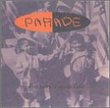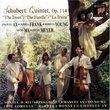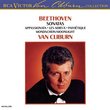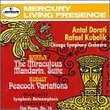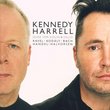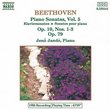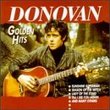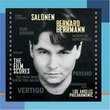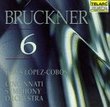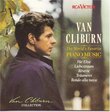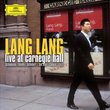| All Artists: Wolfgang Amadeus Mozart, Piotr Anderszewski, Sinfonia Varsovia Title: Mozart: Piano Concertos Nos. 21 & 24 Members Wishing: 1 Total Copies: 0 Label: EMI Classics Release Date: 4/9/2002 Genre: Classical Styles: Chamber Music, Forms & Genres, Concertos, Historical Periods, Classical (c.1770-1830), Instruments, Keyboard Number of Discs: 1 SwapaCD Credits: 1 UPCs: 724354550423, 724354550454 |
Search - Wolfgang Amadeus Mozart, Piotr Anderszewski, Sinfonia Varsovia :: Mozart: Piano Concertos Nos. 21 & 24
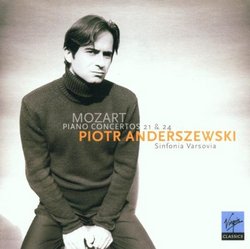 | Wolfgang Amadeus Mozart, Piotr Anderszewski, Sinfonia Varsovia Mozart: Piano Concertos Nos. 21 & 24 Genre: Classical
Piotr Anderszewski is a rare talent who takes big musical risks and makes them seem inevitable. Here, he counters the accepted Mozart-lite style, projecting these works on a broad Romantic canvas. He opens the C Minor Conc... more » |
Larger Image |
CD DetailsSynopsis
Amazon.com Piotr Anderszewski is a rare talent who takes big musical risks and makes them seem inevitable. Here, he counters the accepted Mozart-lite style, projecting these works on a broad Romantic canvas. He opens the C Minor Concerto with an immensely powerful orchestral introduction, perfectly balanced, revelatory in exposing details, and with climaxes like hammer blows. When the violins enter with their sharply accented figure, they stand out like shrieks in the night--startling at first, but appropriate to this tragic work even as it defies period style. His piano entrance is soft and dreamy. His dialogue with orchestra anticipates the slow movement of Beethoven's Fourth Concerto, and his very slow Larghetto features sighing strings and immaculately played wind solos and duets. Anderszewski's cadenzas in both concertos are boldly original, the playing throughout full of feeling and tonal beauty. The sunnier C Major gets more conventional treatment, still replete with individual touches that make his reading stand out from the crowd. Perahia and Brendel may be safer bets, but Anderszewski is exciting and unpredictable. Vivid engineering is an important plus. --Dan Davis Similar CDs
Similarly Requested CDs
|
CD ReviewsAstonishing detail, clarity, and dramatic contrasts Bradley P. Lehman | Dayton, VA USA | 09/14/2002 (4 out of 5 stars) "Piotr Anderszewski's tempos are moderate and flexible, there is plenty of blood-stirring excitement, and the recorded sound is gorgeous. He and the Sinfonia Varsovia bring out the written lines with an amazing contrapuntal clarity. There are more things to notice each time one listens to this, and the tone is unfailingly beautiful even in the most agitated passages.Why didn't I give this five stars? There are a couple of problems here, and both ultimately lead back to a lack of spontaneity. (1) The piano and orchestral lines here are SO richly detailed, the contrasts of mood and tempo so extreme and sudden, that these don't sound (to me) like real performances as much as carefully-prepared and assembled passages from multiple sessions. This is especially noticeable whenever the piano entrances IMMEDIATELY dispel the prevaling mood, bringing a breathless hush to the room, or a sudden surge of excitement...the air feels different, and the spirit of performance seems to jump in discrete motions rather than flowing. Even a very fast transition of mood (a few seconds) would be OK, showing a real-time flow as the musicians adjust to the changes in the music; it's the sudden stair-step jumps of NO transition that are disturbing. The astonishing clarity of texture is wonderful, along with the thoughtful presentation of every note, sure. But the music also has to have more flow: more like a stage play (all one take) than a film made of quick camera cuts and close-ups. Anderszewski's abrupt shifts keep the listener perpetually off balance and encourage a short attention span; it's more like watching television than listening to Mozart. At least the C major concerto here has more flow than the C minor concerto does, and it sounds more real.(2) The lack of improvisation in the piano part leaves some serious gaps. Mozart wrote these concertos for his own use, they were not published during his lifetime, and he did not write down all the notes; the piano part is a sketch, enough information for his own semi-extemporized performances. He premiered K467 (C major) in a 1785 concert that also included entirely-improvised piano music showing off a new "especially large" instrument. K491 (C minor) was for Lent the next year. Anderszewski is too literal. He contributes interesting and appropriate cadenzas, yes, since Mozart didn't write any; but he doesn't play basso continuo (I miss that exciting percussive crunch), and more crucially he doesn't complete Mozart's melodic lines in the places where the notation is only a sketch. At various places Mozart wrote only the low and high notes, and the player is supposed to improvise or otherwise devise appropriate passagework through those turn-around points, continuing the patterns from the preceding bars. Anderszewski merely hits these isolated notes, ping, PING, ping!, and the music sounds startlingly empty, like seeing a portrait of somebody familiar but missing a few teeth. One of the most obvious passages in this regard is at the piano's exit into tutti, just before the first-movement cadenza in the C minor concerto. I compared this against my other recordings: Clifford Curzon, Glenn Gould (studio and live), John Gibbons, Malcolm Bilson. All of those players devise naturally-flowing passagework, different solutions from one another, while Anderszewski abruptly shatters the mood with his empty pings.In brief, there's too much control here, not enough natural music or sense of occasion. (Well, that sentence sounds harsh, so let me try again....) This disc is a "must-hear" anyway, despite those reservations about spontaneity. The felicitous detail that Anderszewski brings out, both in the orchestra and the piano articulation, is astonishing. And there are moments of exquisite magic and grace. All those good points ALMOST offset the lack of sparkle. 4.3 stars out of five?" Bold and Beautiful Pianism greg | Australia | 05/22/2002 (5 out of 5 stars) "This is a CD well worth owning. Anderszewski gives a particularly brilliant performance of concerto No. 24. He puts all of the vibrancy and gusto we expect from him in this brilliant Mozart concerto. The outer movements are played boldly, but for the slow movement we get beautifully and sensitive playing.His interpretation of No. 21 is not quite as satisfying. Others extract more beauty and refinement out of the first movement in particular. The opening could be a little more laid back and quiet, but there are no complaints in general.Of particular interest are the cadenzas Anderszewski has written. Although they may not be conventional 19th century cadenzas, they are very enjoyable, particularly in the opening movt of No. 24. The opening movement cadenza in No. 21 (Not the initial extemoporisation as the piano enters) is quite amusing - it's Beethoven Diabelli Variations through and through.The recorded sound is good, and balance between piano and orchestra also very good. A highly recommended disc." Conducting from the Piano: Another Aspect of Anderszewski T Grady Harp | Los Angeles, CA United States | 12/11/2005 (5 out of 5 stars) "Once the pianism of Piotr Anderszewski is experienced it is contagious! His technique is flawless and his approach to the masters is refreshing in bringing a new stance to works well known to us. And to his gifts of pianistic craft he adds the role of conducting the orchestra from the keyboard. Not that this is revolutionary by any means: this technique of performance goes back for centuries. Yet it is always reassuring when the pianist understands a concerto score so well that he can transmit that knowledge in an intelligent way to a group of musicians.
On this CD Piotr Anderszewski plays and conducts the Sinfonia Varsovia in Mozart's concerti numbers 21 and 24. The result is a sparkling, clearly defined approach to each work, and a strong balance between the piano and the orchestral conversation. There are no major surprises here as there often are in his live performances, but the results are solid, top notch additions to the large volume of recordings of these works. AND Anderszewski gives evidence of being a very fine conductor at this early point in his career. Recommended. Grady Harp, December 05 " |

 Track Listings (6) - Disc #1
Track Listings (6) - Disc #1